Introduction
Hello, fellow health enthusiasts! Today, I'll take you into the fascinating world of the human microbiome. Often overlooked, this complex and crucial part of our bodies plays a profound role in our overall health and well-being. Imagine a bustling city within you, where trillions of microorganisms – bacteria, viruses, fungi, and other life forms – coexist. This city, your microbiome, is not just a passive resident; it's an active player in your health, affecting everything from digestion and immunity to mental health and even your mood.
As we explore this hidden universe, you'll discover how these microscopic inhabitants shape our lives in ways we're only beginning to understand. From breaking down the food we eat to protecting us against harmful pathogens, the microbiome is a true marvel of nature. But it's not just about what these tiny creatures do for us; it's also about how we can nurture and maintain a healthy microbiome. The choices we make, from the foods we eat to the lifestyles we lead, all have an impact on this delicate ecosystem.
Stay tuned, as we delve into the incredible world of the human microbiome. Get ready to be amazed, informed, and inspired!
What is the Microbiome?
When we talk about the human microbiome, we're referring to an incredible, bustling ecosystem made up of trillions of tiny organisms that reside both in and on our bodies. This diverse community, predominantly composed of bacteria, but also including viruses, fungi, and protozoa, forms a complex network that is integral to our existence.
Imagine each of these microbes as a unique citizen, contributing to the functioning of a vast, dynamic city – this is your microbiome. Just like a city thrives on the diversity and cooperation of its inhabitants, our health flourishes when our microbiome is balanced and diverse. These microscopic inhabitants are not mere freeloaders; they are essential cohabitants that play a crucial role in many aspects of our physiological processes.
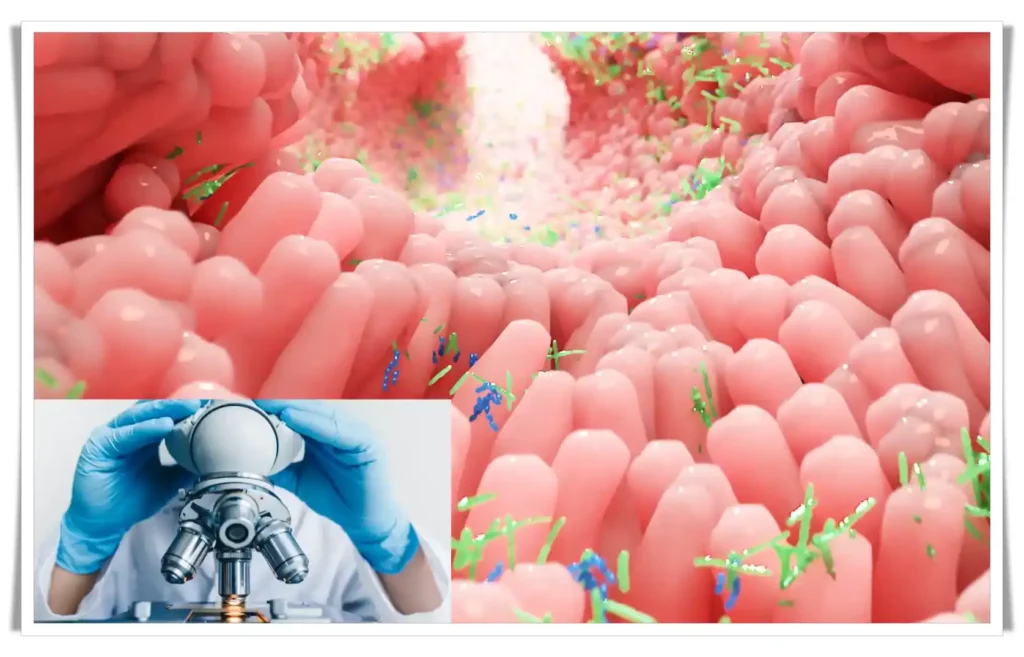
They influence digestion by breaking down food and extracting nutrients that our own bodies cannot process alone. They synthesize essential vitamins like Vitamin K and B vitamins, which are vital for our well-being. Beyond digestion, these microbes are key players in our immune system, teaching it to recognize and fight off harmful pathogens, while also maintaining tolerance to non-threatening substances. This delicate balance helps guard against autoimmune diseases and allergies.
But the influence of the microbiome extends even further – recent research suggests a significant link between our gut health and our mental health, often referred to as the "gut-brain axis." This connection implies that the state of our gut microbiome can affect our mood, stress levels, and even the risk of developing neurological conditions.
The human microbiome is a dynamic entity, changing and evolving from birth throughout our lives. Factors like diet, lifestyle, environment, and the use of medications like antibiotics can significantly impact its composition and function. Thus, understanding and caring for our microbiome becomes crucial for maintaining our overall health.
In the following sections, we'll explore how the microbiome benefits the body, the role of probiotics, and the profound impact of diet on this microscopic world within us. Prepare to be fascinated by the intricate ways in which these tiny organisms profoundly influence our health and well-being.
Benefits of a Healthy Microbiome
A well-balanced microbiome is akin to a finely tuned orchestra, where each microbe plays a critical role in maintaining the harmony of our bodily functions. The benefits of a healthy microbiome are vast and varied, touching nearly every aspect of our health and well-being.
Aiding Digestion
First and foremost, a robust microbiome is essential for efficient digestion. These microbes help break down complex carbohydrates, fibers, and even some proteins and fats that our own digestive enzymes can't handle alone. This process not only provides us with vital nutrients but also produces short-chain fatty acids, like butyrate, propionate, and acetate. These acids are crucial for gut health, serving as energy sources for our gut cells, reducing inflammation, and helping to regulate appetite and metabolism.
Bolstering the Immune System
Beyond digestion, the microbiome plays a pivotal role in shaping our immune system. From birth, these microbes train our immune cells to distinguish between harmful invaders and harmless entities. A diverse and balanced microbiome can enhance immune responses, making us more resilient against infections, while an imbalanced microbiome, known as dysbiosis, can lead to excessive inflammation and increased vulnerability to diseases.
Influencing Mood and Mental Health
Perhaps one of the most intriguing roles of the microbiome is its impact on mental health. The gut-brain axis is a bidirectional communication network that links the gastrointestinal tract and the brain. Microbes in the gut produce neurotransmitters like serotonin and dopamine, which play key roles in regulating mood and anxiety. Studies have shown that imbalances in the gut microbiome can be linked to a variety of mental health issues, including depression, anxiety, and even autism spectrum disorders.
Additional Benefits
A healthy microbiome also contributes to other aspects of health, such as:
- Skin Health: A balanced microbiome can promote healthy skin, reducing the risk of conditions like eczema and acne.
- Heart Health: Certain gut bacteria can influence cholesterol levels and other factors associated with cardiovascular health.
- Weight Management: The microbiome can affect how we store fat, how we balance levels of glucose in the blood, and how we respond to hormones that make us feel hungry or full.
The Role of Probiotics
Probiotics, often referred to as the 'good' or 'friendly' bacteria, play a pivotal role in maintaining the delicate balance of our microbiome. These living microorganisms, when ingested in adequate amounts, confer a myriad of health benefits, particularly for our digestive system.
Nature and Sources of Probiotics
These beneficial bacteria are most commonly found in fermented foods. Yogurt, for example, is a rich source of Lactobacillus and Bifidobacterium, two well-studied probiotic strains. Similarly, sauerkraut, kimchi, kefir, and miso are packed with various probiotics that originate from the fermentation process. Each of these foods offers a unique blend of bacteria, contributing to the diversity of your gut flora.
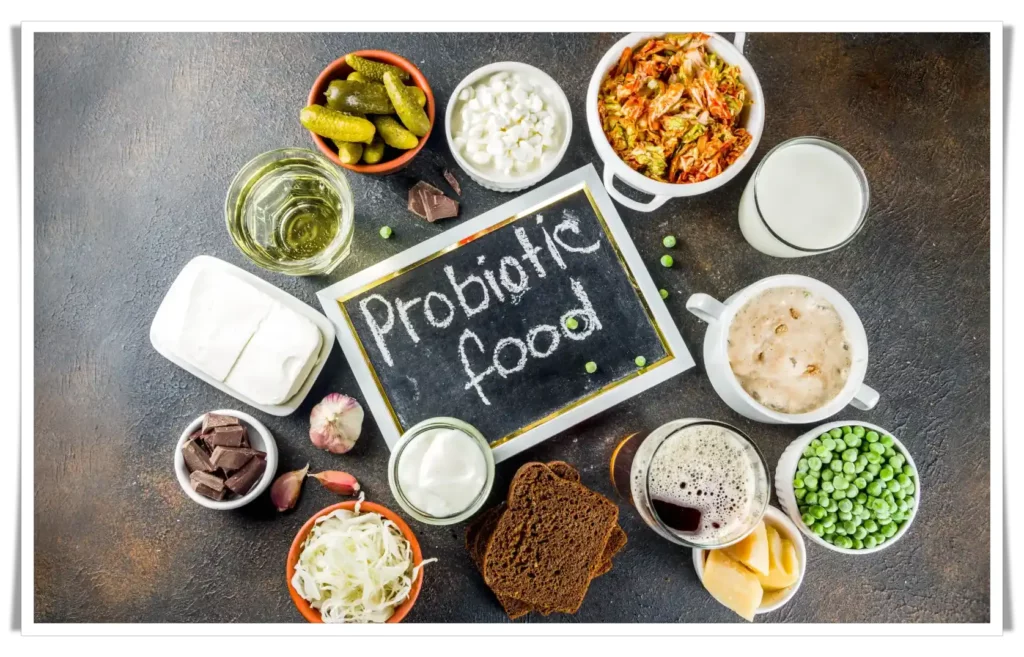
How Probiotics Work
Probiotics work by enhancing the existing microbiome in your gut. They help restore the balance of good bacteria, especially after it has been disrupted by factors like a course of antibiotics, poor diet, or stress. These friendly bacteria compete with harmful bacteria for food and space, preventing the overgrowth of pathogenic microbes.
Health Benefits of Probiotics
The benefits of incorporating probiotics into your diet are extensive:
- Digestive Health: Probiotics are renowned for their ability to ease digestive disorders. They can help manage symptoms of irritable bowel syndrome (IBS), reduce the frequency of diarrhea, and alleviate bloating and gas.
- Immune Support: By interacting with the gut's immune cells, probiotics can enhance your body's immune responses and may reduce the duration and severity of colds and other infections.
- Mental Health: Emerging research suggests that probiotics can have a positive effect on mental health, potentially alleviating symptoms of depression and anxiety due to the gut-brain connection.
- Other Benefits: Probiotics are also linked to benefits such as improved skin health, enhanced nutrient absorption, and even potential roles in weight management and heart health.
Choosing the Right Probiotics
With a variety of probiotic strains available, it's important to choose the ones that are best suited for your specific health needs. Different strains offer different benefits, so it's wise to vary your probiotic sources or consider supplements that contain a blend of strains.
Diet and the Microbiome
The old adage "you are what you eat" takes on a whole new meaning when we consider the microbiome. Our diet plays a fundamental role in shaping the composition and health of our gut bacteria, impacting everything from our digestion to our immune system.
The Impact of Food on the Microbiome
Every bite we take can influence the delicate balance of our gut flora. Foods rich in fiber, such as fruits, vegetables, and whole grains, act as prebiotics, essentially serving as food for beneficial gut bacteria. These fibrous foods are not fully digested in our stomachs and reach the colon, where they are fermented by our gut bacteria, promoting their growth and activity.
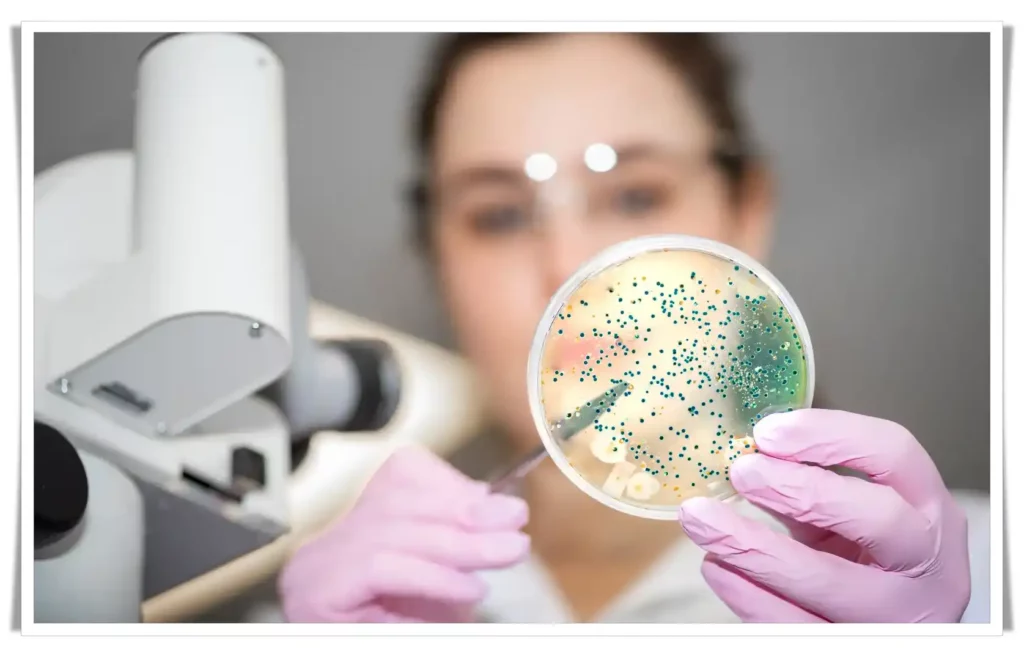
Promoting Beneficial Bacteria
A diet diverse in fruits, vegetables, legumes, and grains encourages a diverse microbiome. This diversity is key to gut health, as different bacteria thrive on different types of fiber and nutrients. For example, leafy greens are rich in a specific type of sugar that feeds beneficial gut bacteria, while whole grains contain various fibers that can benefit other groups of microbes.
The Role of Fermented Foods
In addition to fiber-rich foods, incorporating fermented foods into your diet can directly introduce beneficial bacteria into your gut. Foods like yogurt, kefir, kombucha, and fermented vegetables (like kimchi and sauerkraut) contain live probiotics that can help balance and diversify your gut flora.
Negative Impacts of Certain Diets
Conversely, a diet high in processed foods, sugars, and unhealthy fats can harm the microbiome. Such diets can lead to a decrease in microbial diversity and an increase in harmful bacteria, potentially leading to digestive issues, inflammation, and even a higher risk of chronic diseases.
Personalizing Your Diet for Gut Health
Recognizing that each person's microbiome is unique, personalizing your diet to suit your gut health needs is important. Paying attention to how your body responds to certain foods and adjusting accordingly can help you cultivate a healthier gut microbiome.
Understanding the Gut Microbiome
The gut microbiome, an intricate and diverse community of microorganisms residing in our intestines, is a cornerstone of our health. This bustling metropolis of bacteria, viruses, fungi, and other microorganisms is not just a passive resident of our bodies; it plays a dynamic role in our overall well-being.
A Crucial Role in Digestion
At its core, the gut microbiome is essential for the digestion of food. It helps break down complex carbohydrates, fibers, and proteins that our own digestive enzymes cannot process effectively. This breakdown is vital for extracting nutrients that our bodies need to function properly. The byproducts of this digestion, such as short-chain fatty acids, are critical for maintaining gut health and have systemic effects on our metabolism and immune system.
Vitamin Production and Nutrient Absorption
Beyond digestion, these intestinal microbes are adept at synthesizing essential vitamins like Vitamin K and certain B vitamins, which are crucial for blood clotting, energy production, and other bodily functions. Additionally, the gut microbiome plays a significant role in the absorption of minerals such as calcium and iron, directly influencing our nutritional status.
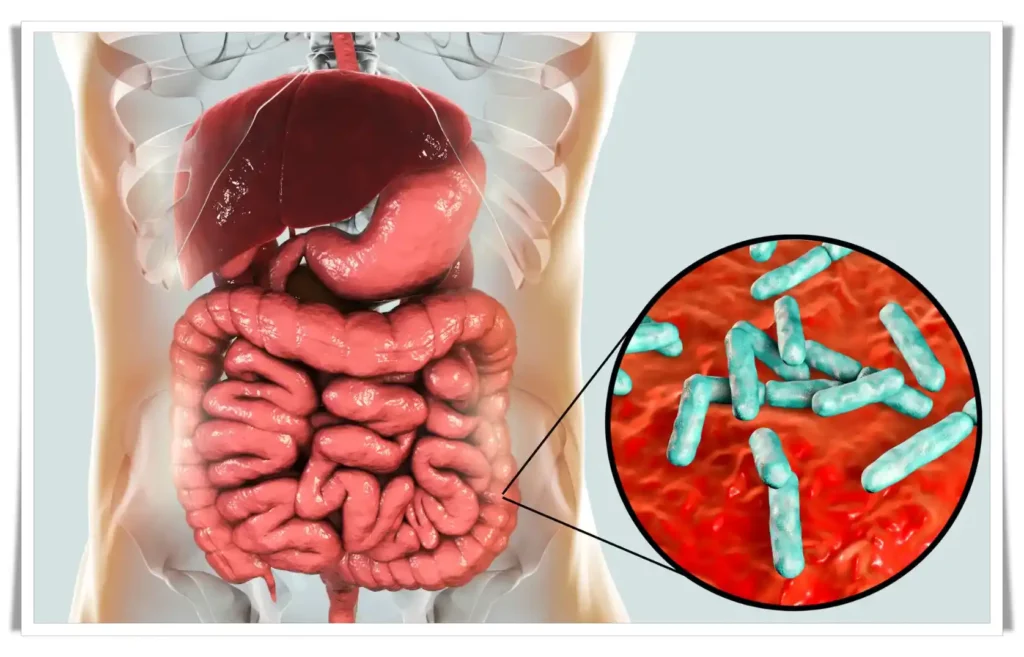
Barrier Against Harmful Pathogens
One of the most vital functions of the gut microbiome is to protect us from harmful bacteria and other pathogens. By occupying space and resources in the gut, these beneficial microbes prevent pathogenic organisms from gaining a foothold. They also help train our immune system to recognize and react to harmful invaders, thereby playing an indirect but crucial role in our immune responses.
Gut Microbiome and Disease Prevention
Emerging research links the gut microbiome to a host of health conditions. An imbalanced gut microbiome, known as dysbiosis, has been associated with various diseases, including inflammatory bowel disease, obesity, type 2 diabetes, and even certain types of cancer. Maintaining a balanced gut microbiome is therefore not just about digestive health, but is integral to preventing a range of chronic diseases.
The Dynamic Nature of the Gut Microbiome
It's important to note that the gut microbiome is not static; it changes in response to diet, lifestyle, environmental factors, and age. This dynamic nature means that we have the opportunity to positively influence our gut microbiome through choices such as diet, exercise, and stress management.
Improving Your Gut Health
Taking care of your gut microbiome is akin to nurturing a garden; it requires attention, the right nutrients, and a balanced environment to flourish. Enhancing your gut health is not just about adding certain foods to your diet; it's about creating a lifestyle that supports the diverse ecosystem within your gut.
Focus on a Balanced Diet
A diet rich in diverse, whole foods is the foundation of a healthy gut microbiome. This includes:
- High-Fiber Foods: Foods like fruits, vegetables, legumes, and whole grains provide the necessary fiber that acts as a prebiotic, feeding the good bacteria in your gut.
- Variety: Eating a wide range of foods encourages a diverse microbiome, which is more resilient and effective in its functions.
- Fermented Foods: Incorporating fermented foods like yogurt, kefir, kimchi, and sauerkraut introduces beneficial bacteria (probiotics) into your gut.
Incorporate Probiotics
Probiotics are live microorganisms that can provide health benefits when consumed. These are found in fermented foods as well as in supplement form. They can help restore the natural balance of your gut microbiome, especially after it has been disrupted by illness, medication, or poor diet.
Moderate Use of Antibiotics
While antibiotics are essential for treating bacterial infections, their overuse or misuse can significantly disrupt the gut microbiome. Antibiotics can reduce the diversity and number of good bacteria in the gut, leading to imbalances. It's important to use antibiotics only when necessary and under the guidance of a healthcare professional.
Stay Hydrated
Drinking plenty of water has been shown to have a beneficial effect on the mucosal lining of the intestines, as well as on the balance of good bacteria in the gut.
Manage Stress
Chronic stress can negatively impact gut health. Engaging in stress-reduction activities such as meditation, exercise, or even simple breathing exercises can improve your gut health.

Regular Exercise
Regular physical activity is beneficial for your gut microbiome. Exercise can enhance the diversity and number of beneficial gut bacteria, contributing to overall gut health.
Get Enough Sleep
Poor sleep patterns can affect your gut health. Ensuring you get adequate and quality sleep helps maintain a healthy gut microbiome.
Current Research in Microbiome Science
The realm of microbiome science is a rapidly evolving field, brimming with groundbreaking research that continually reshapes our understanding of human health. Among the plethora of studies, works like "The Gut Microbiome in Health and in Disease" (read the study here) stand out, offering profound insights into how these microscopic communities within us influence our well-being.
Key Findings from Recent Research
- Gut Microbiome and Disease: This research underscores the critical role the gut microbiome plays not only in maintaining health but also in the development of diseases. Dysbiosis, or imbalance in the gut microbiome, has been linked to conditions such as inflammatory bowel disease (IBD), obesity, type 2 diabetes, and even mental health disorders like depression.
- Microbiome's Role in Immunity: Another significant discovery is the microbiome's interaction with the human immune system. The gut microbiome is instrumental in training immune cells, helping them to effectively differentiate between harmless substances and potential threats. This interaction is crucial in preventing overreactions of the immune system, such as allergies and autoimmune diseases.
- Personalized Medicine and the Microbiome: Current research is also delving into the potential of personalized medicine based on the microbiome. By understanding an individual's unique microbial composition, therapies and treatments can be tailored for better effectiveness, especially in conditions like IBD and obesity.
- Impact of Diet on the Microbiome: Studies are increasingly focusing on the impact of diet on the gut microbiome. These research efforts are unraveling how different foods can positively or negatively alter the composition and functionality of our gut microbiota, providing insights into dietary strategies for maintaining gut health.
The Future of Microbiome Research
Looking forward, microbiome research is set to revolutionize various aspects of healthcare. From developing new therapeutic strategies to understanding the intricate connections between diet, lifestyle, and health, the potential of this research is immense. As we continue to unravel the mysteries of the microbiome, we edge closer to a future where healthcare is more personalized, predictive, and effective.

In conclusion, current research in microbiome science, as exemplified by studies like "The Gut Microbiome in Health and in Disease," is not only fascinating but also immensely valuable. It offers a deeper understanding of the complex interactions between our microbiome and overall health, paving the way for innovative approaches to prevent and treat a wide array of health conditions.
FAQs
Q1: How does the microbiome affect our health?
A1: The microbiome, particularly the gut microbiome, plays a pivotal role in our overall health. It's involved in various crucial processes, including digestion, vitamin production, immune system regulation, and even influencing mental health. A balanced microbiome aids in efficient nutrient absorption helps combat harmful pathogens, and maintains a healthy immune response. Disruptions in the microbiome balance can lead to digestive issues, increased susceptibility to infections, and may even be linked to chronic diseases like obesity, diabetes, and heart disease.
Q2: Can we alter our microbiome through diet?
A2: Yes, diet is one of the most significant factors influencing the microbiome. Consuming a variety of nutrient-rich, fiber-dense foods such as fruits, vegetables, whole grains, and fermented foods can promote a healthy and diverse microbiome. These foods serve as prebiotics, feeding beneficial gut bacteria. On the other hand, a diet high in processed foods, sugar, and unhealthy fats can negatively impact the microbiome, leading to a decrease in beneficial bacteria and an increase in harmful bacteria. By making mindful dietary choices, we can positively influence the composition and health of our microbiome.
Q3: What are the signs of an unhealthy gut microbiome?
A3: Signs of an unhealthy gut microbiome, or gut dysbiosis, can manifest in various ways. Common indicators include digestive issues like bloating, gas, diarrhoea, constipation, and heartburn. Other signs might be less obvious, such as unexplained fatigue, mood swings, skin problems like eczema or acne, and food intolerances. If you experience any of these symptoms persistently, it's advisable to consult a healthcare professional, as they could be indicative of an imbalance in your gut microbiome.
Conclusion
As we reach the end of our journey through the intricate world of the human microbiome, it's clear that these microscopic inhabitants play a monumental role in shaping our health and well-being. Understanding the microbiome is not just a scientific curiosity; it's a crucial aspect of maintaining our health. The trillions of microbes that live in and on our bodies are not just passive residents; they are active participants in our life processes, influencing everything from our digestion and immune function to our mood and mental health.
A Holistic Approach to Health
Our exploration underscores the importance of a holistic approach to health. The microbiome is intricately linked to many facets of our physical and mental well-being, indicating that our lifestyle choices can have far-reaching effects on our overall health. By making conscious decisions about our diet, exercise, sleep, and stress management, we're not just taking care of our bodies; we're nurturing our microbiome, our unseen but essential ally in health.
Call to Action
Have thoughts or questions about the human microbiome? Leave a comment below! Also, check out my related articles on "How Gut Bacteria Influence Our Silhouette and Health" here, watch my YouTube video “If You Have A Leaky Gut, Avoid These Foods!” here, or download my free e-books here!
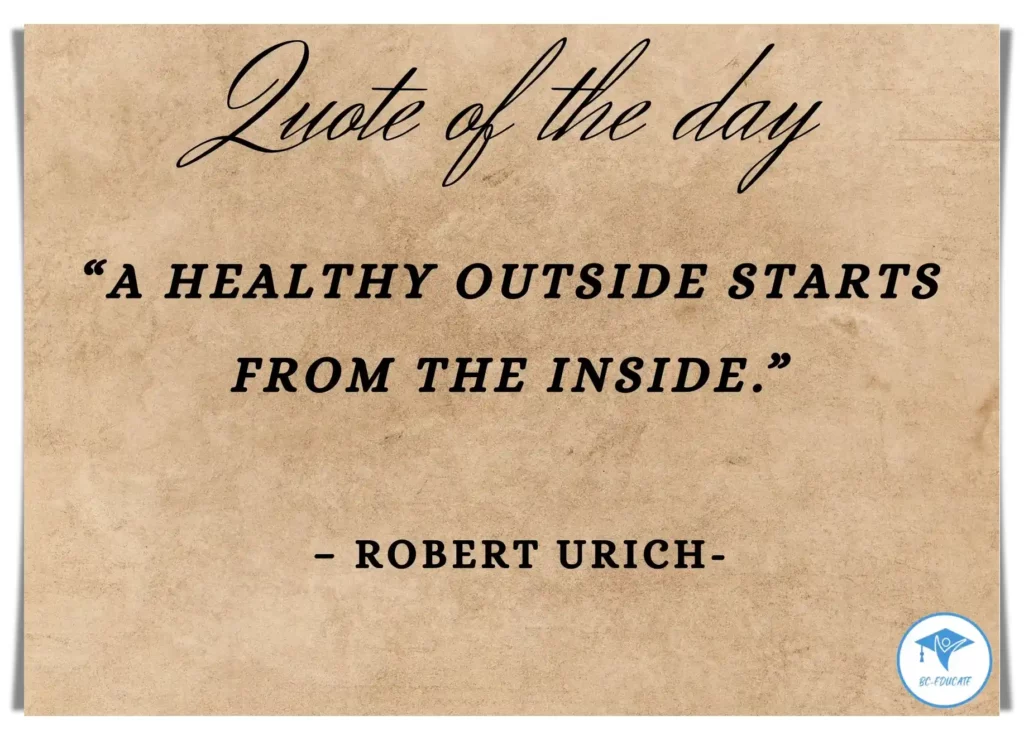




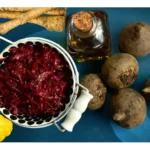
I did not think that microbes are so important for health. thank you for the information!
Nice one!
Seeing how much work you put into it was really impressive. But even though the phrasing is elegant and the layout inviting, it seems like you are having trouble with it. My belief is that you ought to try sending the following article. If you don’t protect this hike, I will definitely come back for more of the same.
I was suggested this web site by my cousin Im not sure whether this post is written by him as no one else know such detailed about my trouble You are incredible Thanks
Its like you read my mind You appear to know so much about this like you wrote the book in it or something I think that you can do with a few pics to drive the message home a little bit but other than that this is fantastic blog A great read Ill certainly be back
Wonderful web site Lots of useful info here Im sending it to a few friends ans additionally sharing in delicious And obviously thanks to your effort
I don’t usually read blog postings, but after reading this one, I had no choice but to try. Your writing style astounded me greatly. I appreciate your wonderful post.
I just could not leave your web site before suggesting that I really enjoyed the standard information a person supply to your visitors? Is gonna be again steadily in order to check up on new posts.
Hello my loved one I want to say that this post is amazing great written and include almost all significant infos I would like to look extra posts like this
For days now I’ve been glued to this gem of a site. The owner works tirelessly to engage fans with quality content. I’m mega impressed and can’t wait to see what they wow me with next!
This is really interesting, You’re a very skilled blogger. I’ve joined your feed and look forward to seeking more of your magnificent post. Also, I’ve shared your site in my social networks!
Wow, fantastic weblog structure! How long have you ever been running a blog for?
you make blogging look easy. The entire glance of your web site is magnificent,
as smartly as the content material! You can see similar:
dobry sklep and here ecommerce
I was recommended this website by my cousin I am not sure whether this post is written by him as nobody else know such detailed about my difficulty You are wonderful Thanks
Magnificent beat I would like to apprentice while you amend your site how can i subscribe for a blog web site The account helped me a acceptable deal I had been a little bit acquainted of this your broadcast offered bright clear idea
Wow amazing blog layout How long have you been blogging for you made blogging look easy The overall look of your web site is magnificent as well as the content
This webpage is unbelievable. The brilliant data reveals the distributer’s interest. I’m awestruck and expect further such astonishing entries.
order lipitor 10mg for sale atorvastatin 10mg price lipitor for sale online
Pingback: Healthy Habits That Support the Immune System - bc-educate
Pingback: Kombucha – The Ancient Drink That Supports Your Microbiome + Homemade Recipe - bc-educate